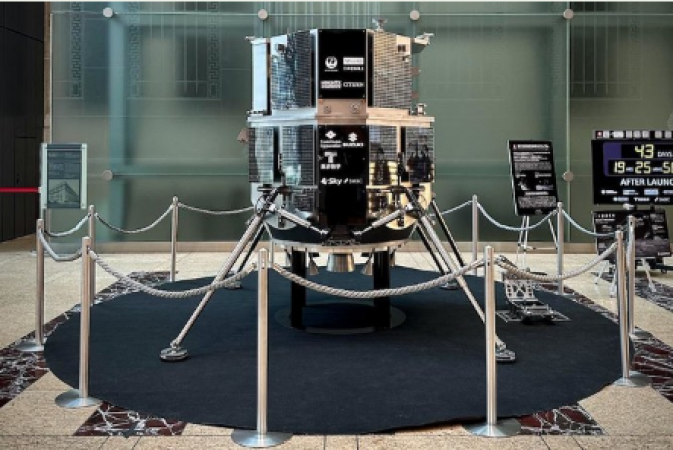
Tokyo: An altitude miscalculation resulted in the spacecraft running out of fuel, which led to the Hakuto-R moon landing mission's failure last month, according to the Japanese startup ispace inc.
After the spacecraft attempted what would have been the first commercial soft-landing on the moon's surface, Tokyo-based ispace lost contact with the Hakuto-R Mission 1 lander.
It was the most recent setback for Japan's space programme. After its solid-fuel Epsilon rocket's launch failure in October, the national space agency was forced to destroy its brand-new medium-lift H3 rocket in March. For its second and third missions, ispace promised enhancements.
Also Read: Focus on British-Pakistani men in addressing child sexual abuse has the UK government on high alert
Ispace CEO Takeshi Hakamada told reporters at the Japan National Press Club, "It is very important for us to increase our knowledge as much as possible to achieve stable commercialization in the future."
Also Read: Japan and the UAE have signed a deal to transfer defence technology
A new space race is underway between the United States and its allies and a China that is becoming more ambitious, where national space agencies once dominated space exploration.
Also Read: Four dead in a gun and knife attack in Japan; suspect arrested
NASA has largely relied on Elon Musk's SpaceX to deliver its payloads into orbit, and last week the organisation contracted a team led by Jeff Bezos' Blue Origin to build a lunar lander.
A second ispace mission with a second M1 lander and the company's own rover is planned for 2024. The company will begin collaborating with US space software developer Draper in 2025 to send NASA payloads to the moon with the goal of establishing a permanently manned lunar colony by 2040.